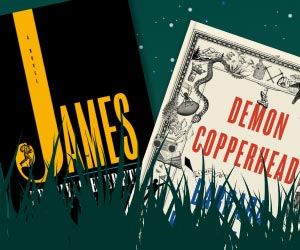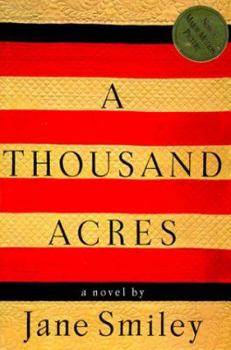A Thousand Acres
Select Format
Select Condition 
Book Overview
PULITZER PRIZE WINNER - NATIONAL BESTSELLER - A powerful and poignant twentieth-century reimagining of Shakespeare's King Lear (The New York Times Book Review) that takes on themes of truth, justice,... This description may be from another edition of this product.
Customer Reviews
Meh
Received wrong copy of book
I've read better Jane Smiley books than this one
A true tragic tale
Astonishing Symmetries Sneak Subtleties into a Surprising Story
A Must Read
Riveting
A Thousand Acres Mentions in Our Blog

Told from the point of view of the enslaved Jim, Percival Everett's latest novel, James, is a brilliant, action-packed retelling of The Adventures of Huckleberry Finn. If you enjoy stories that reimagine, reframe, or pay homage to classic texts, here are fifteen more titles for you.

From Taylor Swift's world domination to Barbenheimer, it's been a year of big stories. As a fun twist on the New Year's tradition of a retrospective on the events of the previous twelve months, we have gathered a collection of ten classic books that sum up 2023.







